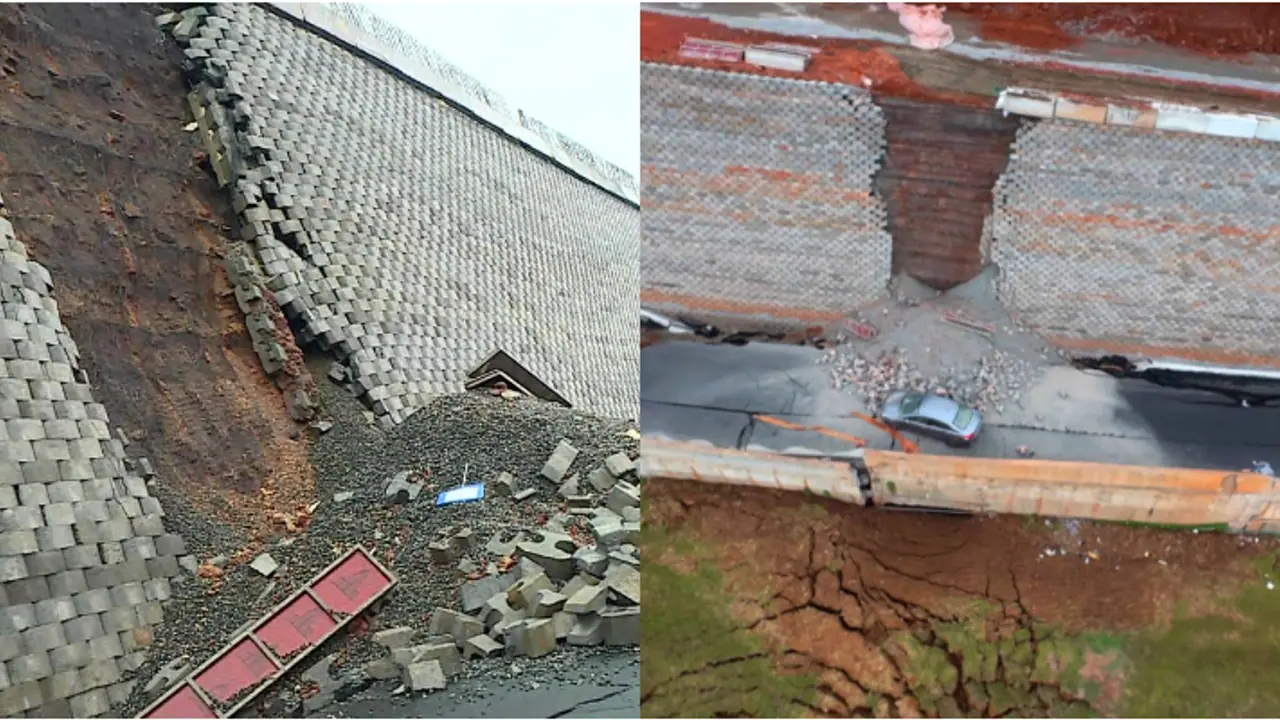Expert committee report submitted to the central government. The committee states that soil testing and other necessary procedures were not carried out properly during road construction.
New Delhi: An expert committee investigating the collapse of the National Highway section in Malappuram's Kooriyadu has identified serious lapses on the part of the companies involved in the construction. The committee has submitted its report to the central government, recommending a complete reconstruction of the affected stretch.

According to the findings, approximately one kilometer of the road — including the damaged retaining wall — must be fully rebuilt to ensure structural integrity and safety.
The report highlights that critical procedures such as soil testing were either inadequately performed or entirely neglected during the initial construction. It also points out that the necessary technical inspections were not conducted in the paddy field areas of Kooriyad, where the collapse occurred.
Describing the incident as "unfortunate," the Transport Secretary’s report concurs with the committee’s conclusion that there were significant deficiencies in both the design and execution phases. Major flaws were found not only in the road design but also in the roles played by the construction company and other involved agencies.
Design flaw led to collapse, says construction company
KNR Constructions, the company responsible for the construction of the Kooriyad National Highway in Malappuram, has admitted to a design flaw that led to the recent collapse. KNR Constructions Executive Director, Jalandhar Reddy, told Asianet News that the foundation work for this road was carried out during the summer and that there was a design flaw in the 250-meter stretch where the RE wall collapsed.
“The soil beneath the RE wall became saturated due to heavy rainfall during the summer, absorbing more water, which might have put pressure on the adjacent wall, The initial study indicated that the RE and RCC walls would be strong. Necessary steps were taken to strengthen the underlying soil. Yet, the collapse occurred,” he said.
Jalandhar Reddy stated that it was necessary to complete the work quickly before the monsoon season. “Efforts were made to finish the work quickly. However, there was no compromise on the quality of construction,” he added. Officials from the National Highway Authority of India (NHAI) inspected the site and issued a show-cause notice to the company. The company officials informed that they would respond within 15 days and take necessary steps to resolve the issue.
KNR, based in Andhra, has also formed another company for operations in Kerala. They were awarded two key highway stretches in Kerala — Ramanattukara to Valanchery and Valanchery to Kapirikkad-- in 202. The design and standards were set by the National Highway Authority. A team of officials appointed by NHAI is overseeing the construction.
What led to the collapse?
The main reason for the collapse of the Kooriyad NH in Malappuram is the assessment that the construction was carried out using RE blocks exceeding the permissible limit. Normally, RE blocks are used for a maximum length of 9 to 12 meters. In the Kuriyad reach, construction was carried out using RE blocks exceeding 16 meters in length. Due to the high clay content in the Kuriyad field, an elevated highway with pillars installed through piling was required. This suggestion was reportedly ignored by the construction company.


